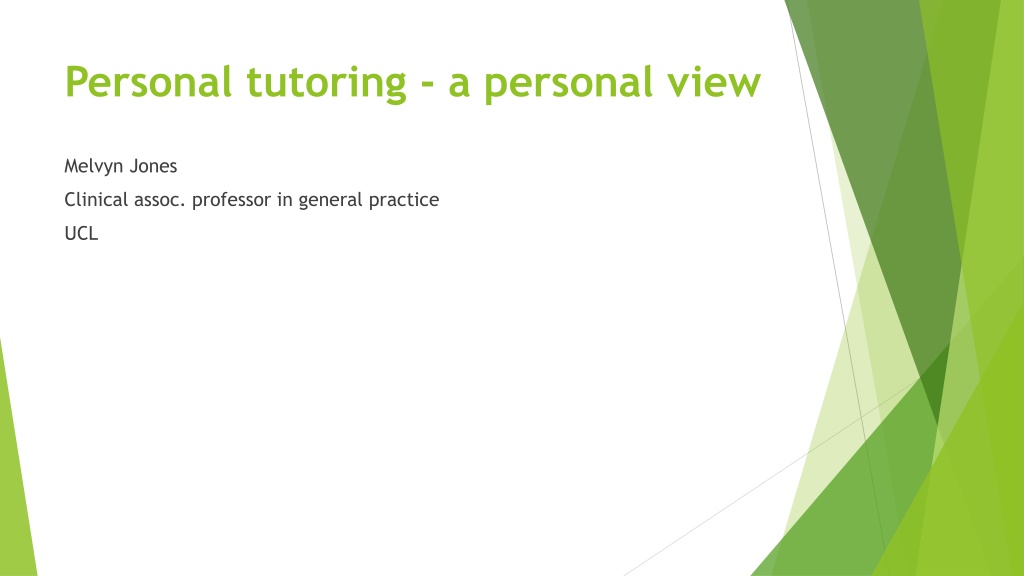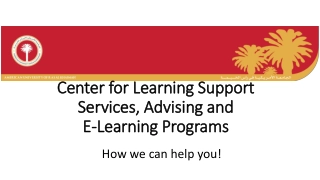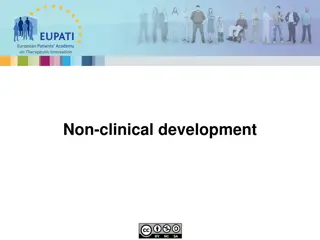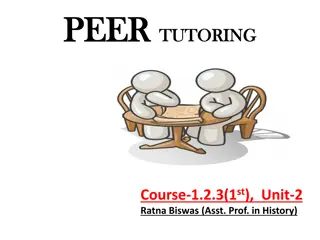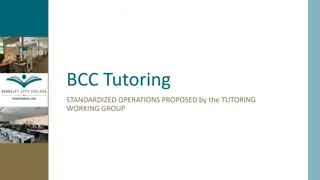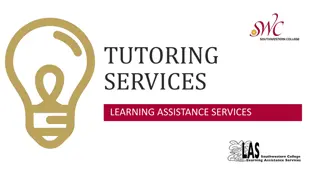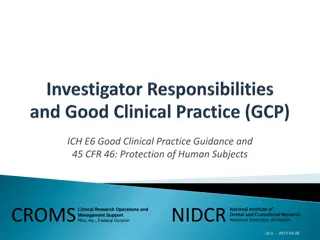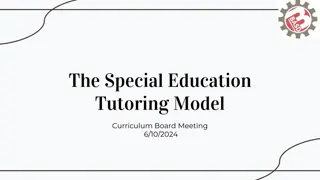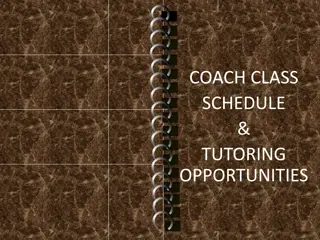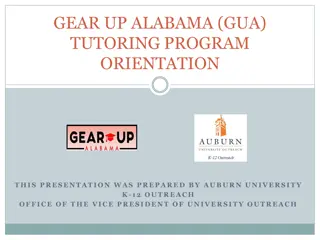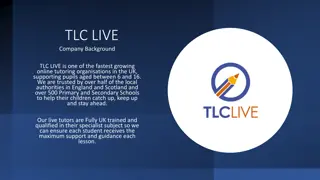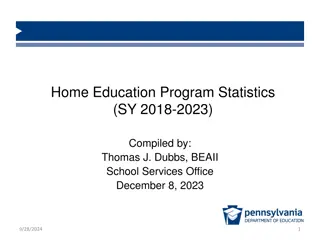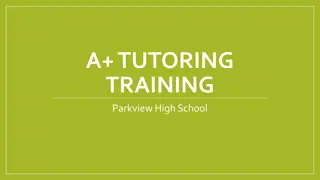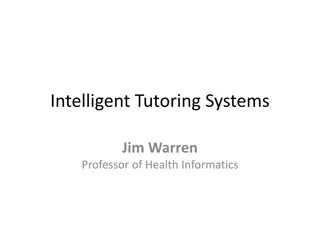Guidelines for Personal Tutoring in a Clinical Setting
Melvyn Jones, a Clinical Associate Professor at UCL, shares valuable insights on personal tutoring in a clinical context. The guidelines cover setting ground rules, one-to-one meetings, dealing with troubled students, addressing failing students, handling non-engagement, supporting overseas students, and keeping in touch effectively. Key points include fostering open communication, addressing academic and pastoral needs, and providing necessary support and signposting. The emphasis is on maintaining confidentiality, offering guidance without extra teaching, and encouraging student responsibility for engagement and success.
Download Presentation

Please find below an Image/Link to download the presentation.
The content on the website is provided AS IS for your information and personal use only. It may not be sold, licensed, or shared on other websites without obtaining consent from the author.If you encounter any issues during the download, it is possible that the publisher has removed the file from their server.
You are allowed to download the files provided on this website for personal or commercial use, subject to the condition that they are used lawfully. All files are the property of their respective owners.
The content on the website is provided AS IS for your information and personal use only. It may not be sold, licensed, or shared on other websites without obtaining consent from the author.
E N D
Presentation Transcript
Personal tutoring - a personal view Melvyn Jones Clinical assoc. professor in general practice UCL
First meeting Group/individual meeting Set ground rules a GP, but NOT their GP Confidential but not unlimited Explain purpose of the tutoring Not extra teaching, not Oxbridge style tutorials Thumbnail sketch - where from, iBSc, external interests- ice breakers Record keeping- e-portfolio Your own notes- with their permission
One to one meetings Consultation skills- open / their agenda Academic performance- need to excel/ rankings & deciles Pastoral stuff- take their lead Finance/ accommodation often issues- know how to sign post to faculty support Documentation - copy them in? Don t do their assessments (CBDs, WBPA)
Troubled / troubling students Mental health issues are very common Don t enter a clinical relationship Be willing to discuss problems but sign post Sign post UCL support services are good and usually better than NHS (CBT etc.) https://www.ucl.ac.uk/students/student-support-and-wellbeing Ask for help
Failing students Non engagement is an early sign Often complex academic, health, financial Most clinical students do eventually complete so give them confidence Get them to follow advice about retakes, time out as 2 strikes and out Parents
Non engagement Ultimately their responsibility Try to flexible A few reminders Hand back to the school teenagers Keep the door open They often reappear when they want / need to
Overseas students Isolated Culture shock Language- colloquialism not so bad , medical jargon Deferential style Huge costs- fees, accommodation, travel Immigration issues
Keeping in touch Light touch Often goes very quiet especially in year 5 Termly email Well done/ try a bit harder email with each exam result Referee Foundation jobs no issues , not seen them clinically Medical school will inform you if there have been professionalism issues Electives, jobs/ tutoring Some come back years later
Final years Often want careers advice You may not be update with Foundation etc. Rotation advice Will my career by ruined if I go to Hertfordshire? Overlap with DGH educational supervisors so they may disappear Elective advice- (career focused or life experience focus) CVs- bells and whistles Audits, letters, presentations Networking & the greasy pole
Summary Rewarding experience See future doctors develop Some are harder to engage with Making a little effort (termly contact), getting to know them is hugely appreciated Ask for help if it gets complicated They are not your patient, they are not your friend (but do be friendly)
